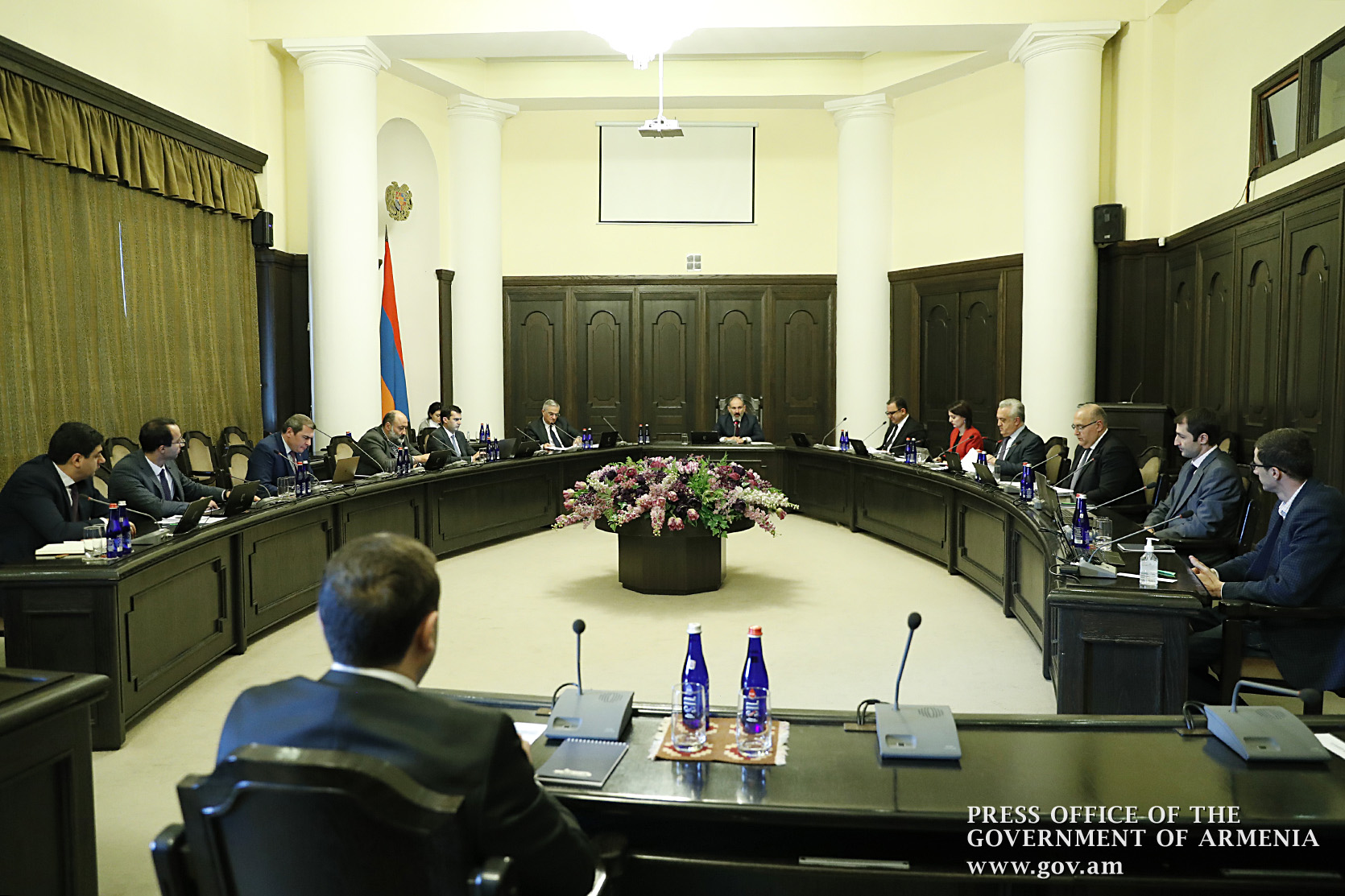
YEREVAN—Authorities in Armenia are implementing measures to enable economic activity to resume in earnest by May 14, when the current State of Emergency (SoE) situation is set to expire. In a televised cabinet meeting on Tuesday morning, Prime Minister Nikol Pashinyan and his government discussed new health and safety protocols to be implemented by various business sectors as part of a phased loosening of the strict lockdown measures which Armenians have endured since March 24.
“Our strategy is as follows: we will work with the Health Ministry to implement new industry-specific health and safety guidelines and insure their adoption by every business before allowing them to reopen upon the SoE’s scheduled expiry date,” Pashinyan explained. He added that strict enforcement will be crucial at this stage in order to avoid a renewed outbreak. Educational institutions, however, will continue online until the end of the academic year.
The government has already lifted restrictions on key export-oriented businesses such as textile, food processing, agriculture and tobacco industries following three straight weeks of relatively flat active case rates registered in the country. Textile mills in particular had emerged as one of the principal sources of outbreaks last month, with hundreds of cases at one factory in Yerevan being traced back to a visiting Italian consultant. Last week, Pashinyan had promised to revisit the SoE conditions if this encouraging trend continued.
Deputy Prime Minister Tigran Avinyan, who heads the country’s COVID-19 response task force, explained that the SoE legislation has been amended to extend the limit on shopping to within 500 meters (550 yards) from places of residence. Walking or exercising will be permitted up to within one kilometer (1090 yards) but limited to two adults of the same family and children. Those planning on venturing outside are still required to carry valid ID and an official form.
The government’s decision to allow businesses to reopen despite the daily infection rate not yet reaching zero is based on data from around the world suggesting that COVID-19 will be around for months to come. “When the pandemic first broke out, we, like most countries, hoped that it would be a short affair,” said Pashinyan on Tuesday. “However, we did prepare a long-term contingency plan anyway.” While the Health Ministry will be setting up strict guidelines for businesses, public healthcare workers will continue to implement widespread testing and contact-tracing methodologies to contain the spread of the virus. For this plan to succeed, the Prime Minister called on citizens to “adapt their behavior and modify habits in both everyday life and economic activity.”

A hint of the expected health and safety measures can already be witnessed at most of the “essential businesses” which have recently reopened. Banks only allow one client in at a time, while long, spaced-out lines of people in masks stand outside. Restaurants offering take-out have added glass dividers. Grocery stores have marked spots for people to stand on. Still, the application of these measures has remained inconsistent as police struggle to regulate all of them.
Health Minister Arsen Torosyan announced that the country’s efforts to flatten the curve have “largely succeeded” in a Facebook post later on Tuesday. A chart attached to his post indicated that the contagion rate remains stable at the manageable rate of three to five percent. According to Torosyan, this respite ”has provided us with precious time to reorganize our healthcare infrastructure to better tackle the pandemic.” However, he did caution citizens that the easing of lockdown restrictions would only succeed so long as the public took on greater personal responsibility to prevent the spread of the infection. He called on citizens to maintain social distancing practices, regular hand washing and the wearing of face masks when outdoors.
Torosyan had earlier expressed concern over a slight uptick in daily new case rates which has been observed over the weekend and continued into the week. While at the time of this writing, Armenia is monitoring 1,000 active cases of COVID-19, the vast majority of which show either mild or no symptoms, the Health Minister pointed out that there might eventually come a time when those who are not in critical condition will be asked to self-quarantine to free up hospital beds. Part of the issue stems from the multitude of contagion sources which are harder to trace, and the increasing risk of infection to medical personnel whose continued efforts are deemed crucial to the effective containment of the outbreak.
Recent Easter celebrations and improving weather have been cited as possible sources of the recent uptick in cases, causing some to call for stricter police enforcement of the lockdown measures. However, the amount of tests conducted across the country have almost tripled over that same period.
At a special session of Parliament this week, the Armenian government approved several more social security, unemployment insurance and aid packages to help mitigate the toll which the lockdown and the slowdown on global trade has had on the economy. An estimated 150 billion AMD (312 million USD) in additional funds will be earmarked for this latest round of aid. The funds will be used to support emergency socio-economic expenses and finance long-term economic development programs.
Parliament also passed a motion to amend the labor code with a more robust framework for employer-employee labor relations. The new wording also clarifies the legal definition of “remote work” in the labor code.
At the time of this writing, Armenia has recorded a total of 1,932 COVID-19 cases since March 1, of which 1,000 are still active. Thirty people have died. Over 900 people have made full recoveries.


Be the first to comment